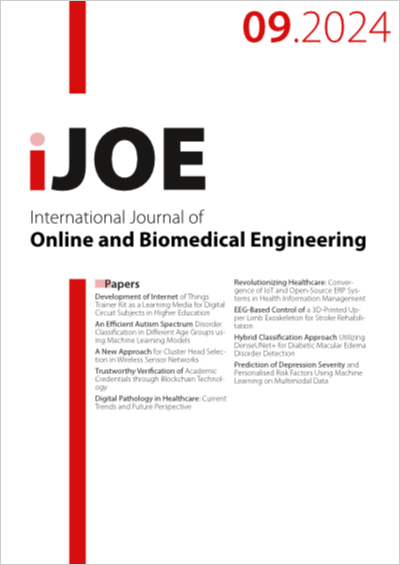Prediction of Depression Severity and Personalised Risk Factors Using Machine Learning on Multimodal Data
DOI:
https://doi.org/10.3991/ijoe.v20i09.47581Keywords:
Depression Severity, Machine Learning, Multimodal dataset, Artificial Intelligence, Linear RegressionAbstract
Depression, a prevalent global mental health disorder, often leads to a reduced quality of life and an increased risk of suicide. Despite the availability of treatments, many cases go undetected, highlighting the need for an accurate machine learning (ML) prediction model for depression severity and risk factors, particularly when dealing with multimodal datasets. Previous studies that utilized ML to predict the severity of depression encountered limitations, such as small datasets and a lack of personalization. This study proposes an optimal algorithm for predicting depression severity and personalized risk factors using ML. The potential benefits include improved accuracy in severity assessment, personalized treatment strategies, and refined risk factor identification. The random forest (RF) algorithm emerged as the most effective, exhibiting notable performance metrics on NHANES data, including a 0.93 R-squared, 0.93 explained variance score (EVS), 0.51 mean absolute error (MAE), 1.73 mean squared error (MSE), and 1.32 root mean squared error (RMSE). Notably, RF identified both general and personalized risk factors for depression severity. This model holds promise for clinical assessment, diagnosis, and intervention planning, contributing significantly to the comprehensive management of depression.
Downloads
Published
How to Cite
Issue
Section
License
Copyright (c) 2024 Adedotun Adetunla, Adefemi Ayodele, Esther Akinlabi

This work is licensed under a Creative Commons Attribution 4.0 International License.


